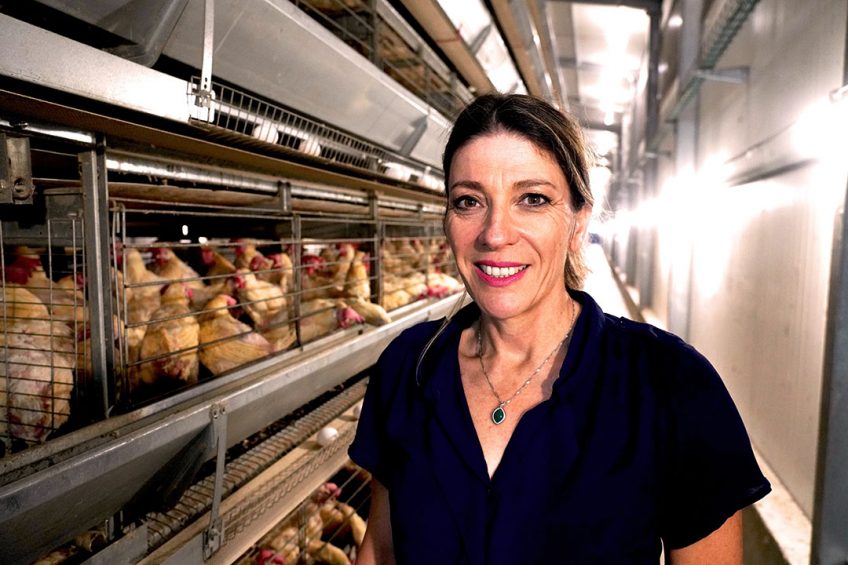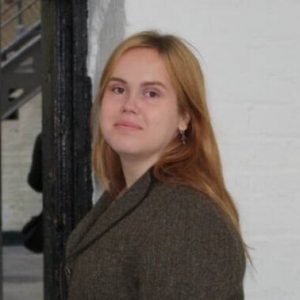Sex reassignment in the egg

Israeli start-up Soos has developed a technique to alter the sex of embryos from male to female in the hatchery and thus tackle the culling of male chicks.
Every year the global egg industry produces 15 billion chicks. Half of them are female and grow up to be functional layers but the other 7.5 billion are males and are culled, leading not only to major ethical and animal welfare concerns but also to lost revenue and missed potential.
As increasingly more countries are banning the culling of male chicks and worldwide egg production increases, finding a solution to end this controversial practice is becoming more and more of a hot topic for the poultry industry. Soos CEO Yael Alter tells Poultry World how Soos hopes to contribute to a more sustainable future for the egg industry.
Start-up agility
Soos’s story started when Yael Alter and Nashat Haj Mohamad met at an agricultural exhibition and struck up a conversation about innovations in the poultry industry. Understanding the challenges that surround the culling of male chicks, Mohamad came up with the idea of using sound vibration in hatcheries to produce more female layers. “When an experiment with a small incubator yielded a higher than average percentage of female layers, we said: ‘okay, this is something we should work on,‘” CEO Yael Alter tells Poultry World. “We raised our initial funds in early 2017 and the first thing we did was to establish our own full site. It is not easy to start up a company and experiment as most research is conducted in a laboratory setting; but when you’re in the process of proving your concept, you need insights from the industry,” Alter adds.
 How to check day-old chick quality?
How to check day-old chick quality?
Getting off to a good start with a new flock needs good preparation, but it is also dependent on the quality of the day-old chicks arriving from the hatchery.
Coming from the industry, Alter is no stranger to building poultry housing, which was instrumental to the start-up’s early days: “The first thing we did was to build a small commercial hatchery of 5000 eggs, we then went on to build a pullet house and retrofitted the coops. We had a layer house of 80,000 birds – which is big by Israeli standards – and now, we have the full cycle,” she says. Because of their focus on sound vibration, Soos’s incubators are very quiet. “The first thing that we discovered is that you can actually sit next to the incubators, which is wonderful because incubators are usually very loud which isn’t very healthy for those working with those machines,” Alter adds. “Three incubators are currently operating and it’s quiet. You don’t hear any noise.”
“We developed an acoustic cell so that we could measure the sound inside the incubator,” Alter explains. “Our next goal is to run pilots outside Israel because our ability to grow here is a bit limited. We need more professional integration to scale-up what we are doing here.”

Sex reassignment in the egg
“Most companies that focus on the problem of culling male chicks are doing sex detection by means of embryonic scanning in the first couple of days. From an animal welfare perspective, you would need to destroy the egg before the 7th day and this is very challenging,” Alter explains. Instead of detecting whether an egg is male or female, Soos’s technology transforms genetic males into functioning females, thereby not only addressing concerns about animal welfare but also tapping into the missed potential of the egg industry, as egg-sexing still involves the destruction of 50% of the production.
Furthermore, some other innovations work by genetic modification of the parent stock which is not accepted in many places in the world. “We are not using any kind of chemical that will affect the eggs; instead, we transform the embryo through sound vibration and through changing the environmental conditions in the incubator. It is well known that sound affects cells, as this technology is also used in medicine and even in cancer treatment. This is precisely what we are doing: we are affecting the cells and thereby defining the sex of the embryos.” So far, Soos has achieved a 60% female hatching rate. They hope to increase this percentage to 80% in the coming years.

Although the technology is new, sex reassignment due to environmental changes is well known in the animal kingdom, with species such as crocodiles, lizards, and even some kinds of fish demonstrating the same ability: “Of course, we did DNA testing to prove our concept and to explain what we are doing, and so we discovered that we have females with ZZ (male) chromosomes,” Alter explains. “One of our goals for 2021 is to do more research, we have some partners in mind to do that in an academic context. We want to research how sound vibrations affect the cell culture and we cannot do that in our facility. We need an institute to help us.” On 23 November 2020, Soos won a grand prize worth US$ 1 million at Grow-NY, a food and agriculture competition in New York State.
 Strong demand for mixed day-old chicks in South Africa
Strong demand for mixed day-old chicks in South Africa
The coronavirus lockdown in South Africa really brought the country to a halt. However, for South African chicken producer Mike Bosch business was brisk. He saw an increase in demand for mixed day-old chicks.
Planning for the future
“Due to the coronavirus our pilots outside Israel have been slowed down but we hope to target Europe in the near future, followed by the US,” Alter continues. “Our main goal for the near future is to run more pilots outside Israel which will help us to improve our hatching protocol and get better results than we are getting now. In the future, I see Soos as living in the poultry industry. I think the ability to reassign sex will change the world.”
Alter hopes that people will be able to meet again in the future. “We depend on each other, we can’t live apart – we need to find ways to be together,” she says, commenting on the challenges that the coronavirus has brought to the fore. She concludes by saying that “Poultry, right now, is a very male-dominated field; I want to see more women running start-up companies. I don’t want them to stand behind men, I want to see them standing shoulder to shoulder, at the same level.”












